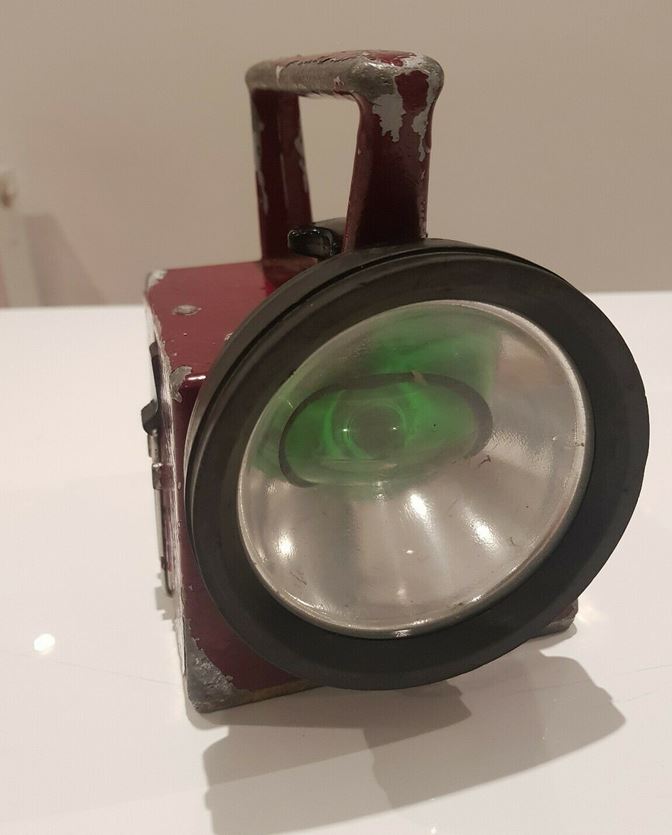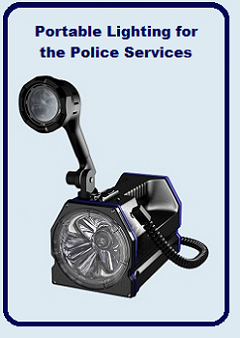In the 21st century “Bardic Lamp” is a generic term used to describe any signalling lamp in use on the railways.

Traditionally a “Bardic Lamp” was the name of a specific lamp made by British Chloride. The name “Bardic” now belongs to the electronic giant Honeywell, and is “dedicated to the design, manufacture and supply of products and systems which are used in making buildings safer around the world”

Referring to a hand-held signalling lamp as a Bardic lamp is similar to referring to a vacuum cleaner as a Hoover – it’s not quite accurate, but everyone knows what it means.
Hand held signalling lamps are still used in a similar fashion today. All that has changed, apart from the name, is the fact that the more modern versions are lighter, brighter and more durable. On the London Underground, Bardic lamps used to be placed on the stand on the offside console. Although the stand is still there it is no longer mandatory for the lamp to be placed there.
Although newer lighter “Bardic” lamps are now being manufactured, there are still a number of the original metal lamps to be found.
Bardic lamps are now used predominantly to signal the last train at night, and also to hold trains when necessary.
Most train staff carry a “Bardic” lamp as part of their regulation kit. In fact, the Network rail approved hand-held signalling lamp designed by White Knight, was done so at the request of a train operator who found the original lamps made the bags rather heavy.
Bardic lamps are carried so as to be available as emergency lighting on tracks, and also as a back up in case of failed lighting on the back or front of trains.
White Knight continues to improve hand-held railway signalling lamps. Advancements in technology have allowed us continuously improve the brightness, durability, battery life and overall weight of these lamps, as they continue to provide a vital service, even on our 21st century railways.
White Knight produce reliable and portable high powered illumination for the rail industry, ambulance and rescue, police and SOCO


